#Shaka King of the Zulu Nation
Note
How physically active were actually "medieval" noble women? I know is a long period but I usually see people complaning about noble women in fantasy doing stuff such as hunting or riding horses. I have seen a couple of illustrations of fencing manuals with women in them too.
We, as a culture, especially in the US, have a very bad habit of using the British Regency/Victorian era as the gold standard for how women all over the world were treated throughout history. And the truth is, it ain’t that way. It never was, because women in this exact era used to duel each other in other parts of Europe and often did it topless.
Yes, this is real. We have records of it.
Was it all women, all the time? No. Was it often enough to mention? Yes.
There’s a really good article by Kameron Hurley, “Women Have Always Fought” that goes over the history of women warriors and the laziness of specular fiction in detail. This is a particularly great few paragraphs from the article that covers where our popular conception that women don’t fight comes from.
“Women have always fought,” he said. “Shaka Zulu had an all-female force of fighters. Women have been part of every resistance movement. Women dressed as men and went to war, went to sea, and participated actively in combat for as long as there have been people.”
I had no idea what to say to this. I had been nurtured in the U.S. school system on a steady diet of the Great Men theory of history. History was full of Great Men. I had to take separate Women’s History courses just to learn about what women were doing while all the men were killing each other. It turned out many of them were governing countries and figuring out rather effective methods of birth control that had sweeping ramifications on the makeup of particular states, especially Greece and Rome.
Half the world is full of women, but it’s rare to hear a narrative that doesn’t speak of women as the people who have things done to them instead of the people who do things. More often, women are talked about as a man’s daughter. A man’s wife.
Sounds familiar, doesn’t it?
Check out some of these real women below.
Empress Maude, the daughter of the English King, Henry I, was named her father’s heir after her brother died. While her cousin Stephen stole the throne after her father’s death, she raised an army and took the country into a civil war to take it back. They fought it out for the decade it took for her son to reach adulthood, and laid the groundwork for Henry II to become king. There’s a great novel by Sharon Kay Penman, When Christ and His Saints Slept which chronicles the civil war. If you’re interested in medieval history, I recommend reading it. Her daughter-in-law, Eleanor of Aquitaine, also led an interesting life. (It should be said, real history got to the denied female heir fights for her throne before George R.R. Martin.)
There’s great videos from Xiran Jay Zhao discussing the Chinese warrior queen Fu Hao of the Shang Dynasty and Wu Zetian, who became China’s first female emperor. (Yes, you read that right. Emperor.)
There is Khutulun, the Wrestler Princess and the great-great granddaughter of Gengis Khan, who is one source of our “defeat her in battle to marry her” tropes. She issued this challenge, “defeat her in wrestling, she’ll marry.” She scammed would be suitors out of 10,000 horses. Western male authors are so threatened by Khutulun, they’ve kept trying to rewrite her history by making her fall victim to the power of love. (No, seriously.)
There’s also Hojo Masako, the Buddhist nun who deposed her own son when he proved incompetent and ruled Japan as Shogun. Here’s her wiki entry too.
The Amazons of Greek Myth were real in that they were actual Scythian women who went to war. (As Scythian women did, just like their men.) They terrified and terrorized the Greeks so much, they became immortalized in their mythology. Don’t believe me? Here’s an article from National Geographic and this one from Live Science.
There’s stories like this all throughout history from big events to small ones. (You can find more over at Rejected Princesses if you’re interested.) There are female warriors, female generals, noblewomen who took command of their husbands’ forces, widows who took to the sea to get revenge on those who wronged them, women who rode with their husbands to battle, female assassins, female leaders of rebellions, etc. The women of the Japanese samurai class were trained to fight, and fight they did. Women warriors, queens, and politicians are all over mythology too. You’ll often see these women come out of the upper echelons of society because money creates options, but they are there. Many of those stories are lost to history, in some cases purposefully, and there was a long trend among archeologists that assumed because a person was buried with male grave goods, the body had to be male. We’re now finding out that isn’t true. There’s a significant portion of warrior corpses that have turned out to be female. Assassin’s Creed: Valhalla chose to post a notice about it in response to these exact criticisms you’re questioning.
Those people you see complaining online? They’re clinging to a version of history that doesn’t exist. More, we know it doesn’t, because popular culture is hungry to the point of desperate for aggressive, confident, and competent female characters. If they were truly a lie, they wouldn’t ring true for so many people.
The history we’re taught today largely downplays women’s achievements, contributions, and successes while uplifting those of men. It’s a fact. Go look at famous female figures anywhere, you’ll find the same story at play over and over. Historically, fantasy as a genre largely portrays a world that is, in fact, fantasy, but that fantasy has nothing to do with women doing things they’re not “supposed” to. There’s no clubhouse. There’s nothing unrealistic in imagining your female character is a kickass queen who defeats overconfident men in wrestling competitions and robs them of all their horses. It’s not unrealistic to come up with an ending that doesn’t conclude in tragedy, violent deaths, them “learning their place,” or even locked within the bonds of an unhappy marriage. (Shocker!) Some did, but the truth isn’t universal. It’s not even unrealistic to imagine they might have supportive male family members, love interests, and followers who happily (gasp) assist them in these endeavors. Maude, for reference, had bastard half-brothers who helped her instead of trying to take the throne for themselves.
History got here before fantasy authors. There’s nothing unrealistic about reality. Popular conceptions and common knowledge fed to us by the majority male dominated culture isn’t always the truth. Reality is, it’s the stories we see normalized across the media spectrum that are wrong. The ones that insist women are objects, who commodify their pain, and reframe their stories to ensure the focus remains on men. While this is changing, women are still often treated as the NPCs of male driven stories.
The people you hear complaining? They want storytelling traditions to stay that way, for the Great Man values countless narratives have reinforced to remain unchallenged. Funny as it sounds, they’re threatened by the very existence of narratives that countermand that centralized focus on men being superior, that there is a stratified gender hierarchy, and men taking their place as the sole, worshipful focus of a woman’s existence, much less these female characters being important in their own narratives. If these people weren’t threatened by female characters being people, they wouldn’t say anything. They’d just move on in apathy.
Reality is people are complicated. There’s room for all stripes in all colors and contexts. It’s no secret that history has suppressed and erased countless stories that don’t support the ruling narrative of the dominant culture. These same people forget there’s plenty of storytelling traditions that include women taking their place as warriors in cultures outside America. For all the sexism and misogyny, women fighting is not an alien concept, it’s not even foreign to other Western European traditions.
Believe what your own research is showing you, not what a bunch of idiots who can’t tell their ass from their elbow are whining about. They can’t handle someone who isn’t straight, male, and (most often) white being the central focus. Really, they can’t handle these characters as even a side focus. That’s their loss, it doesn’t have to be yours.
-Michi
This blog is supported through Patreon. Patrons get early access to new posts, and direct access to us through Discord. If you’d like to support us, please consider becoming a Patron.
4K notes
·
View notes
Text
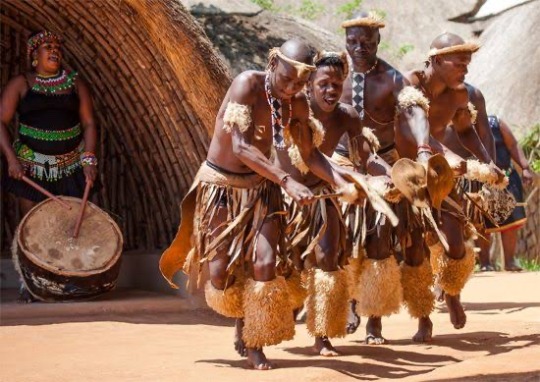
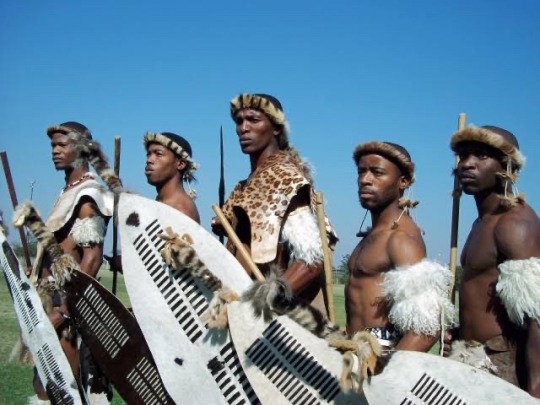
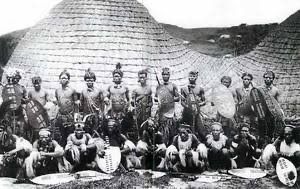
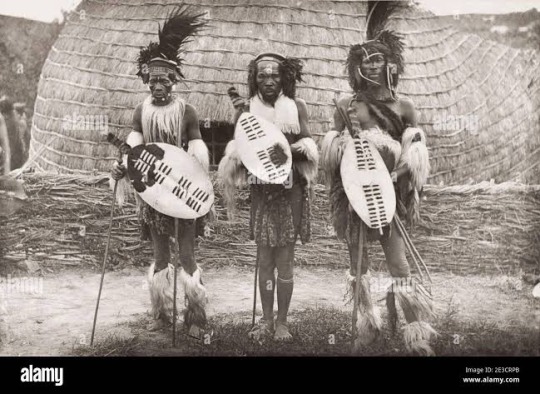

Black history is not all about slave trade
Slave trade is not just black history it’s just 10% of the history africa holds
This is a message to my black brothers and sisters in America
Today I will be talking about the Zulu tribe
The ancestors of the Zulu migrated from west Africa into southeastern Africa during the Bantu migrations from 2000 BC until the 15th century. The Zulu tribe expanded into a powerful kingdom, subdued surrounding groups, and settled in the region known as KwaZulu-Natal in present day South Africa. After enduring colonialism and overcoming apartheid, they have emerged as the dominant ethnic group in South Africa todayAccording to Zulu ancestral belief, the first Zulu patriarch was the son of a Nguni chief who lived in the Congo Basin of Central Africa. By the early 1800s, the Zulu had migrated to Natal, where they lived among other Nguni-speaking chiefdoms. There were ongoing power struggles among these chiefdoms.Around 1808, Chief Dingiswayo of the Nguni-speaking Mthethwa people led wars of conquest to end the power struggles among the chiefs in the communities surrounding his chiefdom.Chief Dingiswayo centralized power by organizing the military into age-based groups, rather than lineage-based regimens. This weakened kinship ties of the conquered communities. Chief Dingiswayo left the conquered chiefdoms relatively intact after they accepted his dominion.The Zulu developed into a distinct cultural group by the time they were conquered by Chief Dingiswayo and his Mthethwa people in the early 1800s. At that time, the Zulu were a small lineage numbering around 2,000 people led by Chief Senzangakhona.Shaka, the future founder of the Zulu Kingdom, was the illegitimate son of the Chief Senzangakhona. Shaka was drafted into the Mthethwa and became one of Chief Dingiswayo's bravest warriors. When Chief Senzangakhona died, Shaka seized the Zulu throne.Using Dingiswayo's military style of weakening kinship ties amongst warriors, Shaka controlled the Zulu community. After Dingiswayo's death, he killed the legitimate heir and installed a puppet as Chief of the Mthethwa.Before long, Shaka seized control over Mthethwa's regiments and assumed power of the newly formed Zulu Kingdom in 1818.
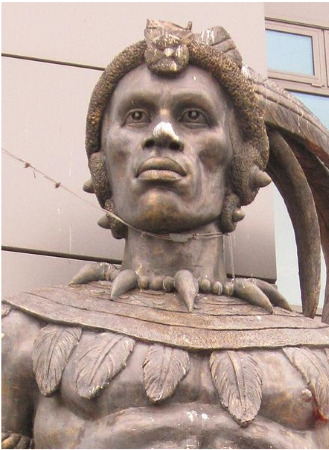
Shaka, Zulu King 1818 to 1828.
Zulu tribe facts include the following:
Shaka Day is celebrated in September by slaughtering cattle, wearing traditional clothing, and wielding traditional weapons. Dignitaries from other tribes and nations attend.
Traditionally a senior male is the head of the clan. Young men train from childhood to fight and defend the clan. Members of the clan have kinship ties based on blood or marriage.
To show respect, the Zulu do not refer to elders by their first name; they use "Baba" meaning father, and "Mama" meaning mother.
Patrilineal inheritance and polygamy are practiced in Zulu culture; having more than one wife is acceptable if one can afford it.
In Zulu culture, bride wealth must traditionally be paid in cattle. Most native groups in South Africa, including Nguni-speaking Xhosa, Ndebele, and Swazi pay bride wealth.
#life#animals#culture#black history#history#blm blacklivesmatter#heritage#africa#biden is obama's puppet#england
626 notes
·
View notes
Text
Gallery Collection 001

Published: 2-21-2024 | Updated: N/A
SUMMARY
This is the first in a series of upcoming investment objects for Sims 2 – things your sims can use to generate income over time. From 1975-2000, Anheuser-Busch, Inc. commissioned 30 paintings of African kings and queens for an extended outreach and marketing campaign. This set of paintings features artwork from this amazing series. Celebrate Black History Month 2024! #co2bhm #bhm2024 #sims2bhm.
*No copyright infringement intended – I own no rights to these images.
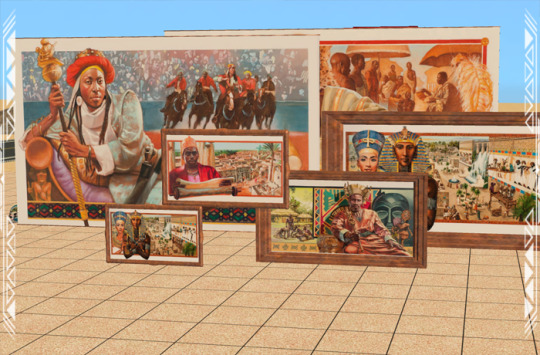
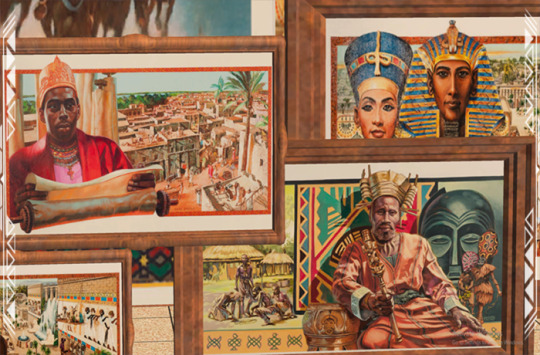
DETAILS
Requires Sims 2. Requires Apartment Life for shiftability.
§1K-15K | Buy > Deco > Wall Hangings
Paintings are centered on 1-tile but cover more tiles than that. They come in various gallery sizes and images have been edited to fit the mesh. After purchase, their value increases by approximately 2% daily – watch out for burglars!
Files with “MESH” in their name are REQUIRED. Frame recolors include EA/Maxis and yeti textures. Frame and painting recolors are merged into two files so you’ll have to take them or leave them.
ITEMS
Great Kings & Queens of Africa: Paintings 001-006 (92-764 poly)
DOWNLOAD (choose one)
from SFS | from MEGA
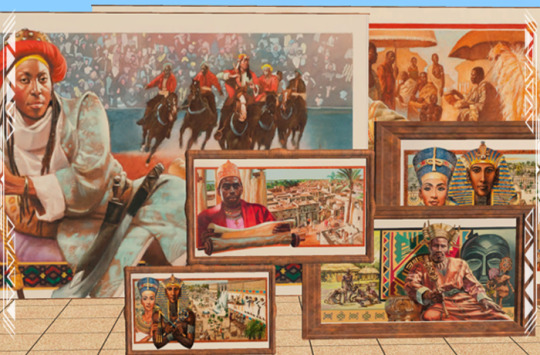
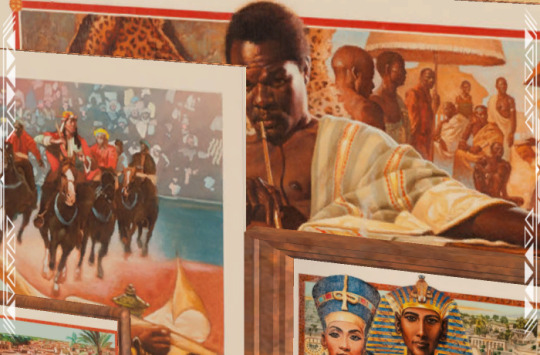
IMAGES
Akhenaton Pharaoh of Egypt (1375-1358 BC) by Barbara Higgins Bond
Alfonso I King of the Kongo (circa 1486-1543) by Carl Owens (1929-2002)
Askia Muhammaed Toure King of Songhay (1493-1529) by Leo Dillon
Benhanzin Hossu Bowelle—The King Shark (1841-1906) by Thomas Blackshear II
Cleopatra VII Queen of Egypt (69-30 BC) by Ann Marshall
Hannibal Ruler of Carthage (247-183 BC) by Charles Lilly
Hatshepsut The Ablest Queen of Far Antiquity (1503-1482 BC) by Dean Mitchell
Idris Alooma Sultan of Bornu (1580-1617) by Charles Lilly (1949-)
Ja Ja King of the Opobo (1821-1891) by Jonathan Knight
Khama III The Good King of Bechuanaland (1819-1923) by Carl Owens
Makeda Queen of Sheba (960 BC) by Debra Edgerton
Mansa Kankan Musa King of Mali (1306-1337) by Barbara Higgins Bond
Menelek II King of Kings of Abyssinia (1844-1913) by Dow Miller
Moshoeshoe King of Batsutoland (circa 1786-1870) by Jerry Pinkney
Mwana Ngana Ndumba Tembo—Ruler of the Angolan Tchokwe (1840-1880 circa) by Kenneth Calvert
Nandi Queen of Zululand (1778-1826 AD) by HM Rahsaan Fort II
Nefertari Nubian Queen of Egypt (192-1225 BC) by Steve Clay
Nehanda of Zimbabwe (1862-1898) by Lydia Thompson
Nzingha—Amazon Queen of Matambo (1582-1663) by Dorothy Carter
Osei Tutu King of Asante (circa 1650-1717) by Alfred Smith
Queen Amina of Zaria (1588-1589) by Floyd Cooper
Samory Toure The Black Napoleon of the Sudan (1830-1900) by Ezra Tucker
Shaka-King of the Zulus (1787-1828) by Paul Collins
Shamba Bolongongo African King of Peace (1600-1620) by Roy LaGrone
Sunni Ali Beer King of Songhay (circa 1442-1492) by Leo Dillon
Taharqa King of Nubia (710-664 BC) by John Thomas Biggers
Tenkamenin King of Ghana (1037-1075 AD) by Alexander Bostic
Thutmose III Pharaoh of Egypt (753-712 BC) by Antonio Wade
Tiye The Nubian Queen of Egypt (circa 1415-1340 BC) by Leonard Jenkins
Yaa Asantewa Queen of Ghana (1863-1923) by Barbara Higgins Bond
CREDITS
No copyright infringement intended – I own no rights to these images. Artwork and trademarks are the property of their respective creators and/or owners. If this exceeds fair use, please contact me via private message.
Thanks: Simming and Sketchfab Communities. Sources: Any Color You Like (CuriousB, 2010), Beyno (Korn via BBFonts), Console Certificates (d_dgjdhh, 2019; 2011), EA/Maxis, Gyeongbokgung Sajeongjeon Painting (National Heritage Administration, 2024 via CCA; Sketchfab), Great Kings and Queens of Africa Series (Anheuser-Busch, Inc., 1975-2000; Kentake, 2016), Offuturistic Infographic (Freepik), Painting by Zdzislaw Beksinski (Sosnowski, 2018 via CCA), Yeti Metals (Shastakiss, 2017).
76 notes
·
View notes
Text
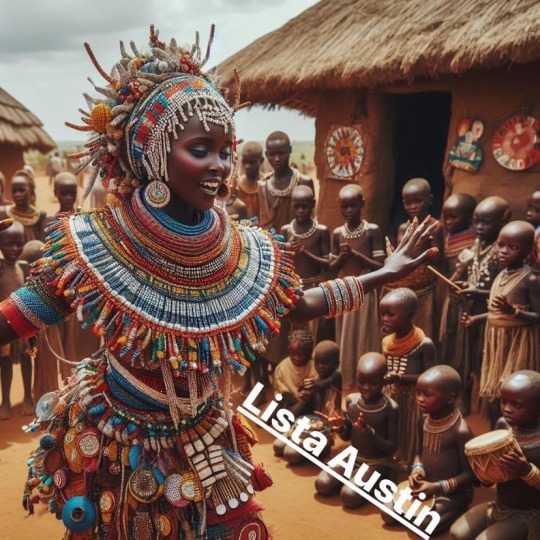
TOP 10 AFRICAN TRIBES/ETHNIC GROUPS THAT ARE GLOBALLY KNOWN.
(In no particular order)
1) Zulu ?? South Africa – The Zulu tribe is popular outside Africa. They’ve been featured in music, documentaries and movies. Shaka the Zulu was a warrior king whose popularity is well spread. Famous Zulus, Lucky Dube, Nasty C, black Coffee etc.
2) Yoruba ?? Nigeria – The Yorubas are globally known for their history, culture, art and literature. Fela, Wole Soyinka, Wizkid, Davido, Tiwa Savage, David Oyelowo, John Boyega, Anthony Joshua etc are a few Yorubas who have taken their culture to the world. The Yoruba culture has been featured in many Hollywood movies.
3) Masai ?? Kenya – The Masai are perhaps one of the most documented tribes in Africa, with alot of documentaries shown about them and books written about their culture.
They are known for their traditional clothing and hunting skills
4) Hausa ?? Nigeria – The hausas are very popular. Often known as the Igbos of the North, The richest black man in the world Aliko Dangote is Hausa along with his brother from the same state Kano Abdulsamad Rabiu (BUA). Their culture has also been well written about and have featured in a few Hollywood movies including the Amazon prime series were a woman was seen eating Tuwo shinkafa.
5) Igbo ?? Nigeria – The Igbos are undeniably known world wide. Chinua Achebe wrote about the Igbo culture alot. They are known for their history, culture and literature.
The popularized the kolanut and palm wine through books, movies and music
Chinwetalu Ejiofor, Zain Asher, Ckay, Flavour, Chimamanda, phyno, P-square are Igbos who have taken their culture to the world. Igbo are known in Nollywood movies.
6) Swahili ?? Tanzania – This tribe have phenomenal spread their language in East Africa and a few central African nations.
In the 70s, their language was part of the African-American black pride movement been pushed forward.
7) Edo/Bini ?? Nigeria – The Binis are perhaps the culture in Africa with the most famous artworks outside Egypt.
Binis are known for their history, culture and art/architecture.
The famous Benin bronze, ivory and brass artworks are known globally. The country Benin republic gets their name from them. Benin art and culture have been featured in Hollywood movies including black panther. Many Nigerian cultures have roots in Benin. The bronze mask of Queen Idia is perhaps the most famous mask in Africa and one of the most famous in the world. Popular Edos are Kamaru Usman, Rema, Odion Jude Ighalo, Victor Osimhen, Dave, Sam Loco Efe etc.
Asante Ghana – This tribe are known for their history and culture. Popular American hip hop artist was named after this tribe Asante. Their Kente is perhaps the most popular African attire outside of Africa and were known to be masters of the gold craft.
9) The Fulani – This nomadic tribes are known for their history and culture. They are predominantly in West Africa and are found in 18 African countries. Most In Nigeria ??
Popular Fulanis or people with Fulani ancestry are Muhammadu and Aisha Buhari, Tafawa Balewa,
10) Berbers/Amazigh – They are predominantly found in North Africa. They are predominantly found in Morocco ?? and Algeria ?? They known for their use of silver silver. Their culture and history well documented and have a unique language and writing system that traces back to ancient Egypt. Books are currently being written about them including a book titled salt by Haitian-American Pascaline Brodeur.
Disclaimer: Every African tribe and culture is beautiful, unique and important. No one culture is more important than the other. This only highlights tribes known outside the continent overall, this doesn’t mean there aren’t other cultures that aren’t known.
PLEASE YOU CAN ADD AND TELL US ABOUT YOUR TRIBE.
39 notes
·
View notes
Text
1 note
·
View note
Text
Cardinal Sin
Chapter one
First verse
“Thou shall not come for the black woman.”
Whether you be other or brother
Must be out your cotdamn mind
To fix your lips to spit some foolishness
And assume I’m finna let it slide
I’m beyond done with you Quasimodos masquerading as Shaka Zulus
You who fetishize the motherland yet detest her daughters
Are unworthy of association with either
In order to be the king
You must lay your life down for the queen
But rather than stand tall
Y'all quick to hotep two step
Dance around accountability
Content to sit on sideline as she unnaturally shifts her spine
Criticise as she throws out her back to pick up your slack
Denounce her for doing for self what you wouldn’t provide her
As if she’d wish to wear the weight of a nation
Defend its borders
Administrate its affairs
All the while making it seem effortless in heels with slayed hair
To be black and to be woman
Is to know no compassion
It is to forever be measured and always found lacking
It is the expectation to be more than a woman
While being treated like less than a lady
It is to walk through a world of pointing fingers
Rarely encountering a helping hand
Because it takes less effort to punch down
Than it does to lift up
It is to intimately know the sting of a slap
While yearning for a caring caress
It is giving the blessing of life to sons who will curse you
It is being crucified and exposed before the world
By the man who was supposed to protect you
It is enduring it all
And still fighting for they who fight against you
0 notes
Text
John Langalibalele Dube [22 Feb 1871 - 11 Feb 1946]
John Langalibalele Dube [22 Feb 1871 - 11 Feb 1946]
Dube was born in the former British colony of Natal, at the Inanda mission station of the American Zulu Mission (AZM), an offshoot of the American Board of Commissioners for Foreign Missions. The son of a reverend, his father was one of the first ordained African pastors of the AZM. His schooling began at Adams School (now known as Adams College) but due to behavioural problems, his father left him in the care of Rev. William Cullen Wilcox as they were departing for the United States of America. Upon his arrival, Dube secured employment on the road gang. He was enrolled at Oberlin Academy Preparatory School and immersed himself in the studies of printing and self-help, but never graduated. He stayed at the Academy until 1890.
He married his first wife, Nokutela Dube in 1894. In 1901, he and his wife established the Zulu Christian Industrial School, which later became Ohlange Institute (now called Ohlange High School). It was the first place of learning established by black South Africans. The school sought to provide students with an understanding of Zulu culture, academic learning, and its application in labor, much like the teachings of Booker T. Washington. This is the same school that the late Nelson Mandela chose to cast his first vote in South Africa’s first democratic elections in April 1994.
He believed in black South Africans participating in the economic activities of the country. This led him to establish the isiZulu newspaper ‘Ilanga’ in 1903. This publication is still in circulation and is known as ‘Ilanga Lase Natal’. This was the first newspaper established in this language. Dube was also an accomplished writer, he published a biography on the prophet Isaiah Shembe and a historical novel on Shaka called ‘Insila kaShaka’. Dube received his PhD from the University of South Africa (UNISA) in 1936.
Dube was also a respected politician. He was one of the founding members of the South African Native National Congress, alongside his nephew Dr Pixley ka Seme. Dube was elected President; ka Seme was Treasurer; Sol Plaatjie was Secretary General. This meeting took place at Maphikela House in Mangaung Township, Bloemfontein on 8 Jan 1912. In 1914, the SANNC leadership was part of a delegation to the United Kingdom. Their attempt was to try and persuade the King to put an end to the 1913 Land Act. Unfortunately, the compromises that Dube made during these negotiations on the contention of land led to the end of his SANNC presidency in 1917. He was replaced by Sefako Mapogo Makgatho. During Makgatho’s tenure, SANNC would become the African National Congress in 1923 and changed their political ideology from petition politics.
Dube believed more in creating ‘racial harmony’ between white and black South Africans. To that extent, he was a part of General Smuts’ Native Conferences but grew to realise they were powerless and quit in 1926.
He had married for a second time following the death of his first wife while he was SANNC President. He married a woman named Angelina, and together they had four children. Dube dedicated the rest of his life to politics in the Natal region. He died on 11 February, 1946.
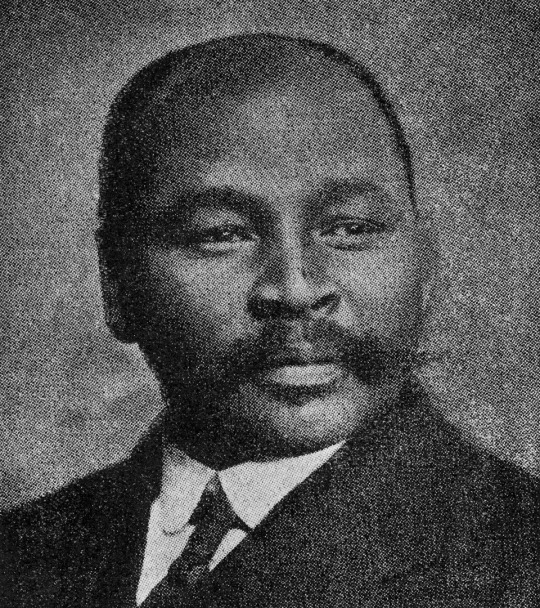

0 notes
Text

"Zulu kings are descendants of King Shaka, the 19th-century leader still revered for having united a large swath of the country as the Zulu nation, which fought bloody battles against the British colonizers."
0 notes
Text
Zulu coronation: King Misuzulu crowned in historic South Africa ceremony
A new Zulu king has been crowned at a historic event attended by thousands in South Africa's coastal city of Durban.
Sun (crowns (new Zulu monarch Misuzulu ka Zwelithini is crowned)) quintile & Venus (ornamentation (wearing black feathers and holding a spear and shield)) square Mbabamwanawaresa (a Zulu diety, celebration of accomplishments or awards (sang and chanted in celebration)).

King Misuzulu ka Zwelithini was formally acknowledged as monarch by President Cyril Ramaphosa, who gave him a certificate of recognition.
The ceremony was the first Zulu coronation since South Africa became a democracy in 1994.
It ends a long and bitter tussle to find a successor for King Goodwill Zwelithini who died last year.
He was the longest-reigning Zulu monarch, having served on the throne for almost 50 years.
He had six wives and at least 26 children.
The sudden death of King Misuzulu's mother - a month after being named Queen regent, following her husband's death - further deepened a power struggle in the royal court.
Prince Bambindlovu Zulu told the BBC that he believed that his brother would unify the monarchy and his people.
"Our parents would be proud of this moment," he said. "I think he will be a great king."
In his first speech after his coronation, King Misuzulu said that he had embarked on a journey with the community and hoped to be a "catalyst" to bring about positive change.
"I understand that history has chosen me at this time when the Zulus are facing several challenges at this time," he said. "The challenges are poverty, unemployment, a trust deficit in government and traditional leadership, climate change and food insecurity."
President Ramaphosa quoted Shaka Zulu, the community's most influential 18th Century leader, saying: "He, Emperor Shaka, would say: 'On my right is the nation, on my left are my clansmen, this is the bond that binds us together'.
Celebratory songs, chants and dance accompanied every speaker at the event, which was marked with a mix of traditional Zulu culture and Christian prayers.
The coronation took place days after the US warned of a risk of a terror attack in the country.
Several local and foreign dignitaries were among tens of thousands of people who attended the ceremony at the Moses Mabhida Stadium.
The last coronation took place on a rainy day back in 1971 under the apartheid government, when King Goodwill Zwelithini ka Bhekuzulu was crowned.
Then, as now, South Africa's traditional leadership was regulated by the government. But the white-minority authorities at the time expected the young monarch to wear Western attire.
In contrast, Saturday's event on a hot sunny day featured an ostentatious display of Zulu culture, including the old and young wearing traditional regalia.
"It's a joyous occasion, the beginning of a new era," explained Sihawukele Ngubane, a professor of African languages at the University of KwaZulu-Natal and an expert on Zulu culture.
"The apartheid-era government bestowed the certificate to the king back then. This time we expect our king to wear his traditional garb because we now live in a democracy and there's absolutely no obligation for his majesty to wear British-inspired clothing."
A fifth of South Africa's population is Zulu - the country's largest ethnic group -and its monarchy has a yearly taxpayer-funded budget of more than $3.6 (£3.2m).
It is the money that tends to put South Africans off royalty - given the country has eight monarchs officially recognised by the government, all funded by taxpayers.
Many question the seemingly lavish lives that some of the traditional leaders lead, with luxury cars and large properties.
Thousands gather for the coronation of the new Zulu king
The Zulu royal household receives one of the biggest budget allocations, though KwaZulu-Natal's provincial government states that this money is not just spent on the family - it also covers staff salaries, maintenance of palaces and programmes that deal with traditional ceremonies and social cohesion.
Many South Africans hope the new monarch - as he did last month - will continue to publicly back causes like addressing the fight against gender violence in a country that has one of the world's highest rate of rapes and sexual assaults.
Minor planet keywords developed by Philip Sedgwick, used with permission http://philipsedgwick.com/
Centaur, TNO & Asteroid Aspectarian http://serennu.com/astrology/aspectarians.php
0 notes
Text
King Misuzulu kaZwelithini gives Shaka Zulu production the thumbs up
King Misuzulu kaZwelithini gives Shaka Zulu production the thumbs up
The reigning king of the Zulu nation has given his stamp of approval to the Shaka Zulu-inspired series Shaka iLembe.
King MisuZulu kaZwelithini recently took to his Instagram timeline to share a picture of what seems to be a set for the show, which started filming in Gauteng and KwaZulu-Natal last month.
“Konke kuza kahle ngokuqoshwa kweLembe [Everything is coming along well with the recording…

View On WordPress
0 notes
Text
Showtime has ordered a drama series about Zulu king Shaka, with Antoine Fuqua onboard to direct and executive produce.
“Shaka: King of the Zulu Nation” hails from writers and executive producers Olu Odebunmi and Tolu Awosika. Rooted in actual events, the series chronicles Shaka’s unlikely rise to power, uniting multiple tribes across vast stretches of Africa in the early 19th century to transform his power into legend, on par with history’s most seminal figures.
“This project offers a gateway to our past that is so critical to our global history and yet so often marginalized,” said Fuqua. “Through “Shaka: King of the Zulu Nation,” we hope to bring this saga to life, all the tears, sweat and blood, all the joy and sorrow, all the intimacy and intensity and humanity. In short, we’re going to rock the world with this one.”
“Olu and Tolu have written such an exciting and emotional origin story of an African warrior hero,” said Gary Levine, co-president of entertainment for Showtime. “And Antoine’s passion for this project, coupled with his formidable talent, promises an epic series unlike any other on television.”
39 notes
·
View notes
Text
Shaka: King of the Zulu Nation: Showtime ordena la serie dramática del siglo XIX - Programas de televisión renovados y cancelados
Shaka: King of the Zulu Nation: Showtime ordena la serie dramática del siglo XIX – Programas de televisión renovados y cancelados
por Regina Avalos, 17 de marzo de 2021
Shaka: The King of the Zulu Nation se dirige a Showtime. El canal de cable encargó la serie dramática que tiene lugar en el siglo XIX y sigue al líder del Imperio Zulú Shaka y su improbable ascenso al poder. Antoine Fuqua (Training Day) es productor y director.
Showtime reveló más sobre el nuevo drama en un comunicado de prensa.
“SHOWTIME ha anunciado que…

View On WordPress
#cancelados#del#dramática#King#Nation#ordena#programas#renovados#serie#Shaka#Showtime#siglo#televisión#XIX#Zulu
0 notes
Text
#AntoineFuqua producirá serie @Showtime #ShakaKingOfTheZuluNation √
Showtime ha entregado un pedido directo de serie para Shaka: King of the Zulu Nation, un drama del productor ejecutivo Antoine Fuqua.
Antoine Fuqua (Eric Charbonneau), Olu Odebunmi (Tolu Awosika), Tolu Awosika (Claudia Giner).
Creada y escrita por Olu Odebunmi y Tolu Awosika, la serie tiene sus raíces en hechos reales. Aquí está la descripción formal de Showtime: “cuenta la historia del jefe…

View On WordPress
0 notes
Text
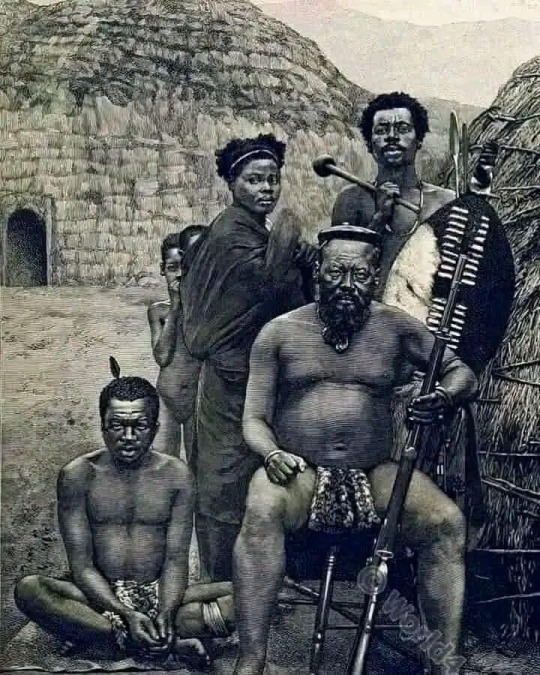
The Zulu state was formed by Shaka, who ruled as the king from 1816 to 1828.
Shaka was the stuff of legends, and subsequent tales of his life include a prophecy that foretold of a child that would make the Zulu the most feared of nations. Shaka’s success was due to the modifications he made to the traditional weapons (spear, club, and shield) as well as to new battle strategies. He took the traditional circumcision schoolage sets and turned them into more effective military regiments or impis.
Zulu regiments could cover up to 50 miles (80 kilometers) a day and still be able to fight a battle at the end of the march, while E.uropean armies of the day could barely cover 20 miles (32 kilometers) in a day and rarely were able to engage an enemy at the end of a day’s march...
45 notes
·
View notes
Text
I recently asked reddit for some LGBT history from countries other than the US. Here’s what I got:
Germany
The Weimar Republic was surprisingly accepting of "alternative lifestyles."
During the Weimar Republic, Germany had a pretty active LGBTQ scene, with some major films and songs being produced, despite it still being illegal at the time. However, there was also a push to decriminalize homosexual behavior which sadly wasn't passed as the Nazis came to power.
This was based of two factors: after WW1 the authoritarian culture of Prussia sorta received a long overdue pushback. People were kinda sick of it, especially since these losers led them into a seemingly pointless war to begin with. Second: A LOT of men died in WW1 - and the army did not exactly prefer LGBT people. So with a lot of regular folks dead, the percentages of the total populace was sorta shifted. This also pushed the women's rights movements at the time for a similar reason.
Magnus Hirschfeld was helping trans people transition, crossdressers get crossdressing 'licenses', and generally advocating for and helping the LGBT community in the early 1900s in Germany. Nazis ended up raiding and burning down his research institute.
Hirschfeld was a gay polyamorous man. He was one of the first advocates for trans and gay rights but his work was destroyed by the Nazis.
The institute he headed even did the first modern gender affirming surgeries. The institute was destroyed and many people who were there (including the first known person to undergo complete MtF surgery) were killed by the nazis and the place was little more than bombed out ruins at the end of the war.
More information on the institute
Pre Nazi interwar Germany (Weimar Republic) was pretty open when it came to not only sexuality, but also gender identity. The Nazis put a stop to that & tried to destroy any & all research into either, but, for a brief moment, it was there.
Russia
Pretty sure all Russian LGBT history was erased before we even had a written language, but Russia almost got gay marriage legalized in the first soviet constitution (didn’t happen bc Stalin)
The early soviet period (pre-Stalin) is sometimes called “the first sexual revolution” as opposed to America’s “sexual Revolution” of the 60’s. Broad women’s suffrage, female employment and education, parental leave, advancement of GSM rights & decriminalization of abortion. This unfortunately did not stand the test of time & reactionary sentiment.
Additional Source
UK/ Britain/ England
The lead singer of Judas Priest is gay. The commenter’s father thought it was kinda funny because it didn’t match with his biker aesthetic, but the commenter doesn’t think he considered how much leather he wears on a daily basis
Hell bent for Leather was a track off Killing Machine. It was written by lead guitarist Glenn Tipton (who is straight), but it's fun to find alternative meanings in Priest songs. A second commenter likes to pretend a lot of the lyrics Halford sings are gayer than they actually are.
A couple people mentioned how uncomfortable it was seeing Ru Paul interact with British drag queens because he barely knows anything about British culture.
Ru Paul got angry that a British drag queen hasn’t seen the Golden Girls because “it’s gay culture” and then not five minutes later someone had to explain to him who Alan Turing was.
Alan Turing, who was an incredibly noteworthy figure (He made the Enigma codebreaker machine, which broke the code that was used by Nazis during the war and basically sped up the war by a significant margin. He also set the foundations for artificial intelligence, one achievement he was named for: the Turing Test), was homosexual and prosecuted multiple times because of it
Shakespeare was probably bisexual (some of his sonnets had homoerotic subtext/were sent to a younger man). Plus, Hamlet is gay as fuck.
Sonnet 46 was very gay. Here’s a link!
King James 1st was corrupt and used his position to promote his gay lover to higher positions than he should've gotten.
The 13 year old king James 6th of Scotland and 1st of England fell in love with a 37 year old catholic Franco Scottish man. The king gave the older man so much free shit that other lords started getting salty and his lover ended up converting to Presbyterianism out of loyalty to his young lover. He also fell in love with a man who ''was noted for his handsome appearance as well as his limited intelligence.''
Clearly James was into himbos, and women too.
He had a secret tunnel connecting his bedroom to George Villiers’s bedroom.
His relationship with Villiers was basically common knowledge and a source of much amusement and mockery. He also once said that his relationship with Villiers was equivalent to the relationship that Christ had with John the Baptist
Much more recently, there's obviously JKR and the banning of puberty blockers and Margaret Thatcher opposing LGBTQ+ rights by passing a law meaning you couldn't 'promote homosexuality'.
Prince Philip was a racist twat (and probably a huge homophobe knowing him).
Gay marriage only became legal in 2014.
The Wolfenden Report was published in 1957, and it recommended the decriminalization of homosexual acts between consenting adults. It was a huge topic of public debate, and ultimately led to the Sexual Offences act of 1967, which legalized sexual acts between consenting men aged 21 or over in England and Wales (sexual acts between women were never explicitly criminalized). Scotland decriminalized sex between men in 1980, and Northern Ireland in 1982.
For a totally batshit real-life bit of gay history, check out the show A Very English Scandal. It's about a politician, Jeremy Thorpe, who put a hit out on his former lover who was threatening to go public with the fact they had had a relationship.
Austria
Gay marriage was legalized in Austria about 3 years ago. The worst thing is that it'd have staid illegal if the Supreme Court wouldn't have jumped in and declare it to be unconstitutional.
Austria did have something called "partnership" which was where gay couples could officially register with the state as couples but not receive any of the benefits of married het people
They still have super backwards Transphobic laws requiring for example "real life experience" to get even diagnosed. Basically you're forced to be and live as feminine/masc as possible and a doctor them judges if you're femme or masc enough. It's torture
Australia had widespread, over 60% approval of gay marriage for well over a decade before the government legalized it. The governments were actually going against the people for a very long time by denying it.
Taiwan/ Hong Kong/ Mainland China
When Taiwan recently legalized gay marriage, their official statement was something along the lines that they were casting off Western-imposed values and returning to their own traditional values and the entire western lgbt community ridiculed them in a "if that's what you need to tell yourself" sort of way but it's actually the truth.
Prior to western colonization, the Imperial Chinese attitude toward sexuality was not dissimilar to Greco-Roman attitudes in that a man must marry a woman to beget legitimate heirs but whatever else he does on the side is his own business. It wasn't until Victorian colonizers came along and imposed homophobic attitudes on China that China started treating gays like abominations. In Taiwan, Hong Kong, and Mainland China, as indeed most of the world, homophobia is a western value imposed by colonizers.
Bonus history: there is an actual saying in Arabic that was in widespread use across the Middle East and North Africa for thousands of years from classical antiquity until European colonization. The saying goes "Women are for babies, [young men] are for fun."
The commenter specifies that this means “college-aged twinks,” not children
Another commenter speculates about when homophobia arose in China and how. They also add that in Rome, bottoms were stigmatized.
There’s a story of Emperor Ai of the Han dynasty & him cutting off his sleeve for his boyfriend
There is also a god worshipped in Taiwan, the Rabbit God Tu'er Shen, whose domain is managing love and sex between same-sex attracted people. He is meant to be the incarnation of a soldier from the 17th century, who fell in love with an imperial inspector and spied on him bathing, and was tortured and killed by that official because he was offended by the spying. A villager from the soldier's hometown dreamed that Tu'er Shen appeared to him and said that because his crime had been love, he had been appointed to manage the affairs of gay people. The villagers erected a secret temple to the soldier, and people have been praying to him ever since.
South Africa
South Africa became the first nation in the world to explicitly prohibit discrimination based on sexual orientation in its constitution. It was also first country in Africa to legalize same sex marriage in 2006. What really set them back for so long was apartheid.
There is some speculation that that Shaka Zulu was gay since he never took any wives
South Africa's post Apartheid constitution was the first in the world to outlaw discrimination based on sexual orientation in 1996.
South Africa was also the 5th country in the world and only country in Africa to legalize same sex marriage in 2005.
Even before that the Constitutional Court ruled that sexual orientation was not relevant when deciding child custody in 2002.
Transgender folks have been allowed to change their sex in the population registry since 2003.
Conversion therapy is not illegal yet and public opinion still needs some work.
Spain
In Spain gay marriage was legalized in 2005, now they are considered one of de gay-friendliest countries in the world. The commenter is a lesbian and has never been closeted or directly experienced discrimination for being a lesbian.
In July 2005, Spain became the third country in the world to explicitly legalize gay marriage, after a thirty-year struggle following the fall of Franco's dictatorship, during which most activism was carried clandestinely (as it was illegal).
From 2007 onwards, Spanish [binary] trans people can legally correct the name and sex fields of their IDs and currently, there's a push for a law that would allow for legal recognition of non-binary Spaniards.
Despite the dictatorship in the 60s, there were cinemas that specialized in gay meet ups. Trans women also had ways to get passports so they could go to the US for surgery.
Ireland
In Northern Ireland, same sex marriage only became legal in 2020 and the leader of the most popular party is homophobic transphobic racist and sexist af. In fact, the majority of the party are but some of the quotes from the biggest party leader are depressing.
Same-sex marriage was only legalized in Ireland in 2015. Homosexuality was decriminalized in 1993.
When Ireland legalized same sex marriage by popular vote in 2015, it was still something you got horribly bullied for in schools if you were out. Queer people got an apology from the Taoiseach in 2018, for the suffering and discrimination we faced from the State prior to the legalization of homosexuality.
In the case of trans rights, in 2015 the Gender Recognition Act was signed into law. It allows legal gender changes without the requirement of medical intervention or assessment by the state as long as you are over the age of 18.
Ireland has fines and jail time for anyone found guilty of attempting conversation therapy.
Ireland has seen a lot of progress in LGBT rights in the last 6 years but even up to the 2000s, citizens left their family members and friends to rot for being LGBT+. It still happens all over the country, especially in circles that are still fanatically Catholic. As the Catholic Church has lost the iron grip on the country, people have become more accepting of the LGBT+.
India
The Kamasutra(ancient text on sexuality etc.) has an entire chapter dedicated to homosexuality
The Arthashastra, a 2nd century BCE Indian treatise on statecraft, mentions a wide variety of sexual practices which, whether performed with a man or a woman, were sought to be punished with the lowest grade of fine. While homosexual intercourse was not sanctioned, it was treated as a very minor offence, and several kinds of heterosexual intercourse were punished more severely.
Sex between non-virgin women incurred a small fine, while homosexual intercourse between men could be made up for merely with a bath with one's clothes on, and a penance of "eating the five products of the cow and keeping a one-night fast"
Milk, curd (cheese), ghi (clarified butter), urine, and dung are the five products of a cow
The commenter adds that this is not a terrible punishment.
The Mughal Empire mandated a common set of punishments for homosexuality, which could include 50 lashes for a slave, 100 for a free infidel, or death by stoning for a Muslim
On 6 September 2018 the Supreme Court of India invalidated part of Section 377 of the Indian Penal Code making homosexuality legal in India
Prior to the British colonization of India homosexuality was not all that looked down upon when compared to what happened when the British took over and instituted anti gay laws.
The Hijra (literally means third gender) were seen as normal and have been accepted since long before Christ, as evidenced by the Karma Sutra. The British took videos of them to take back to demonstrate how the Desi were “barbaric”.
Bonsia
In Bosnia, there was a one pride parade that ended with religious extremists ruining it and the police not doing anything. It was supposed to be 5 maybe 3 days long but ended in like 1 or 2.
The Danish astronomer Tycho Brahe mapped out the entire night sky with only his eyes. It laid the foundations of many later scientists, such as Isaac Newton. He was a very rich nobleman, so much so that he owned 1% of Denmark's money. He had a pet dwarf that apparently could see the future, which sounds pretty gay. He was also part of the Elefant Ordning, which consisted of rich and strong Danish men.
Philippines
Despite many attempts to legalize same-sex marriage, the Philippines still didn't budge. Being gay in itself is legal, but same-sex marriage still isn't.
Philippines ,the most Catholic Country in Southeast Asia, has held the largest Pride Parade in Southeast Asia.
Serbia
Serbia didn't have history from about 16th century to 1800's when the 1st revolt happened and failed till 1813's... Then yet another in 1830's for semi independence from Turks, and full in 1836
During the last lingering Ottoman rule over autonomous Serbia, Serbia was one of the very first few countries to have legal mostly everything... it then got removed with like 3 constitution changes and then it didn't move forward for a looong time
Switzerland
Would you have thought that small, conservative Switzerland was a center of the international gay community during the mid-20th century? The magazine "Der Kreis"- the circle - was the only queer magazine in the world that kept publishing during WWII. It was edited in Zurich and distributed internationally, which often meant illegal smuggling, even into nazi Germany. The magazine's annual ball was attended by hundreds of gay men from all over Europe each year. The whole thing was kept strictly secret from the public, though it was known and tolerated by the police.
The Kreis club disbanded in 1967, as repressions grew heavier after a number of murders in the scene had caught the public's attention. By then, other European and American groups took its place, publishing their own magazines.
They made a movie about it.
More info about Der Kreis
As of today, Switzerland doesn't allow gay marriage. A country-wide referendum will be held this fall on gay marriage.
The commenter speculates that gay marriage will be legalized.
A few people expressed surprise that Switerland is socially conservative and several people explained that women’s right to vote was only place in the 70s.
There’s a movie about it
Turkey
A Muslim Persian (born in modern day Turkey) philosopher/mysticist named Mewlana who is known for his sayings on acceptance and love for one another was gay! He had exchanged letters with his instructor Shams and wrote homoerotic poems to him! In Turkey this is ignored by many due to the country's stance on homosexuality
More information
Norway
The commenter’s hometown and the neighboring town arranged their first pride parade/event in 2017, which is a big deal for a small place and one of the local priests went livid and went straight to the newspaper and social media to condemn it. A local rapper wrote a short and to the point article in the newspaper calling him out for all kinds of things which was a great read. Then to top it off, the priest arranged for a "Jesus Parade" in protest to be held the day before the pride parade. Only like five people walked in it, not including the priest of course because he happened to be on vacation in Spain that week. The pride parade itself was a success though! It's become an annual event. Covid has put some breaks on it though, but they're making a documentary this year about the pride celebrations.
Hungary
Hungary has no same sex marriage or transition rights
Police are unkind to protestors
During “commie times,” being queer was illegal so queer people went to the gulag
Belgium
Same sex marriage was legalized in Belgium in 2003 (right after the NL who were the first in the world). The commenter says that same-sex marriage has always felt possible and she is confused about other countries’ actions.
Poland
Polish president on public assembly: 'LGBT is not people, this is ideology'.
Denmark
WHO took their sweet time declassifying being transgender as a mental illness, so Denmark got sick of waiting and became the first country to stop classifying it as an illness.
Australia
In Australia same-sex marriage wasn't legal until 2017.
Portugal
Portugal is know for having one of the most (if not THE most) peaceful revolutions in history back in the 60's, with only 4 deaths total.
Canada
Operation Soap.
Mexico
To learn more, watch Dance of the 41 on Netflix.
Netherlands
NL was one of the first countries to legalize gay marriage in 2001
Sweden
In Sweden they used to classify Homosexuality as a disease during the 20th century so in protest people would call in too gay to work.
New Zealand
When same sex marriage was legalized, the parliament broke into song.
The song
Other
Homosexuality is illegal in 73 countries, some by death or life in prison.
Only one country in Asia has legalized same-sex marriage: Taiwan
FNAF is older than same-sex marriage in the US
Condor Operation
I think this is some important stuff so please reblog so more people can see! And, if you would like to add to or correct anything here, feel free to do so!
#history#lgbt#lgbt pride#pride#lgbt history#world history#queer#usa#germany#uk#world war 2#austria#taiwan#south africa#spain#ireland#india#bonsia#philippines#serbia#switerland#turkey#norway#hungary#bengium#poland#denmark#australia#portugal#canada
126 notes
·
View notes
Text
0 notes